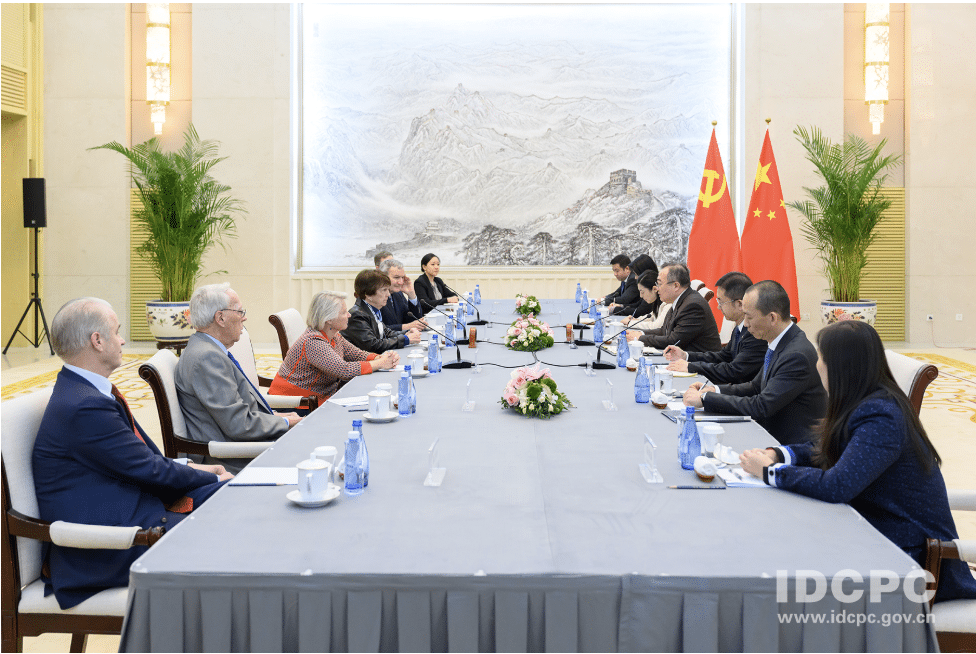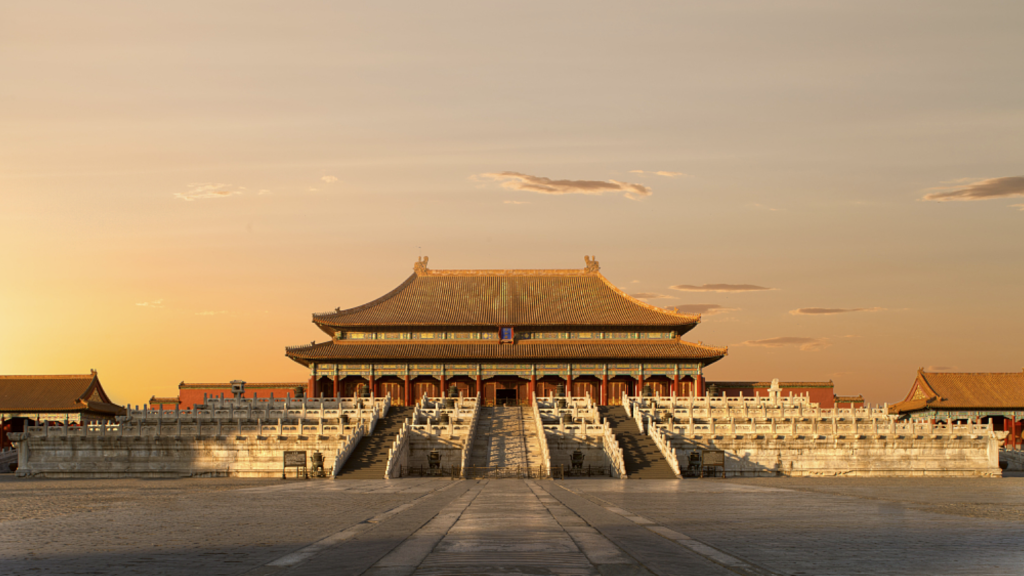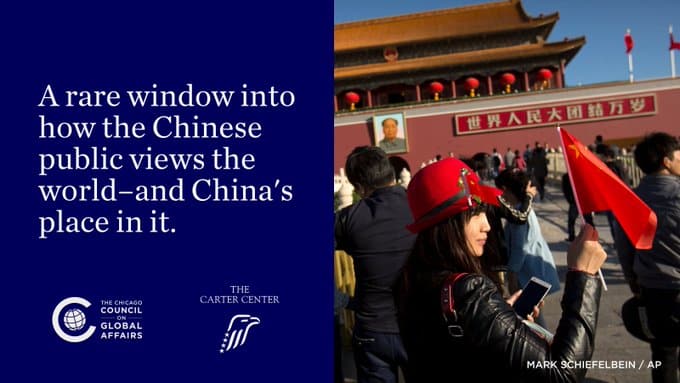Interview With Minxin Pei: How Should China Prepare for a Second Trump Presidency?
- Interviews
 Juan Zhang
Juan Zhang- 03/25/2024
- 0
Editor’s note: The U.S.-China Perception Monitor recently sat down with Professor Minxin Pei of Claremont McKenna College to discuss a host of important issues in U.S.-China relations, including TikTok, China’s economy, and the prospect of a second Trump Presidency. Professor Pei is a frequent commentator on Bloomberg News. His research focuses on governance in China, U.S.–East Asia relations, as well as democratization in developing nations. His latest book is The Sentinel State Surveillance and the Survival of Dictatorship in China.
China recently coined a new term referring to its economic development: “New Quality Productive Forces”. What is your take on this?
I think advocating for higher productivity in various industries is not a problem. According to China’s current definition of new quality productive forces, it aims to develop high-tech manufacturing, update the industrial supply chain, and achieve self-sufficiency and security. The problem with this policy is that it covers a narrow scope. The issue China needs to consider now is whether future development should focus on the manufacturing or service industries.
According to economic data, China has already begun deindustrialization. More than 20 years ago, industry accounted for over 50% of China’s GDP, but now it has dropped to below 40%. This is a trend. From the perspective of increasing people’s income, developing the service industry is definitely more effective. The primary reason for developing high-tech manufacturing now is to address national security issues. However, China should not put all its eggs in one basket. The country must understand that while developing high-tech manufacturing solves security problems, it cannot meet economic demands.
You recently wrote a commentary in Bloomberg saying that if Trump is re-elected, China should invest in some “Trump insurance” and prepare in advance. What are some ways China can prepare in the case of a second Trump Presidency?
There is very little China can do, mainly depending on whether Trump fulfills his current promises regarding his policy towards China. For example, in terms of economy and trade, he threatened to cancel normal trade relations with China and impose a 60% tariff on Chinese products, whereas the current tariff is around 25-30%. If that were to happen, it would have a significant impact on China’s economy and also the U.S. economy.
It is believed that Trump may bring back Robert Lighthizer, the former trade representative responsible for the trade war. Therefore, if Trump takes office again, the trade war and high-tech war will be even more damaging than they are now.
As China prepares for this prospect, it can consider several options. First, stick to negotiations. Negotiations can at least buy time and allow understanding of the other side’s bottom line – for example, to see if the U.S. really does not want to do any business with China anymore, or if it’s just a bluff.
Second, China should have some contingency plans domestically. In the event of a heavy blow to foreign trade, China should roll out some stimulus domestically to offset economic losses. China did not implement economic stimulus policies during the pandemic. Will it consider implementing stimulating measures when dealing with a new round of trade and technology wars?
Third, broadly reconsider China’s own economic policies. China’s economic policies in recent years have been unwise in some aspects, such as the reversal of support for a market economy and the support for the private economy remaining only in words. If China really wants its economy to recover, it must rely on the private sector, but mere verbal support is not enough. Significant economic policies must be implemented. If these three points are achieved, I believe China will not be in a completely precarious position. Of course, the Chinese economy will still take a big hit if Trump keeps his promises on China after he returns to office.
Are Trump and Biden really intending to exclude China and not “play” with China anymore?
Through the lens of the two political parties, the hawks within the Republican Party indeed do not want to “play” with China anymore. Their view is that for so many years, the U.S. has been nurturing a tiger to its own detriment, and now it is time to completely decouple – the sooner, the better. The Democrats, in contrast, are more thoughtful, and their policies are more like weaning the tiger, but not starving it to death all at once. Being too extreme is not beneficial to the United States. In their view, the economic interdependence between China and the United States runs deep, and there are no alternative solutions in some areas. In this situation, decoupling is not feasible.
However, I think although the Republican Party talks about decoupling from China, when it comes down to implementation, they may seriously consider whether it can become a reality.
The Democrats also believe that maintaining a certain level of economic and trade relations with China will cushion security conflicts between the two. Imagine if China completely decouples from the United States, it means that any pressure from the United States on China will be useless, which means that the U.S. will have played all its cards against China. This is not necessarily a good thing for the United States.
The original policy of the Biden administration towards China was to construct a more sophisticated form of containment, but due to domestic political pressure and military concerns, the policy is much more hawkish, in particular with respect to tightening technological controls. This trend is probably inevitable. However, at least under a Democratic government, the pace of “decoupling ” will be slower, while the pace of the Republican Party will be faster.
You wrote in Bloomberg recently that even if Russia wins on the battlefield in Ukraine, it is still a “loss” for China. How did you come to this conclusion?
In the Russia-Ukraine war, China’s biggest loss is Europe’s strategic neutrality in the U.S.-China rivalry. Before the war, it was feasible for China to keep Europe strategically neutral because there were no fundamental security conflicts between Europe and China. But after the outbreak of the Russia-Ukraine war, China sided with Russia, and things changed.
The Russia-Ukraine war is the biggest security crisis Europe has faced since World War II. From the perspective of Europe, China has also become a party responsible for this due to its support for Russia. Europe has shifted its policy towards China from not mentioning de-risking to promoting de-risking. So, in the future, China will not only face competition with the United States but also with the United States and Europe combined. In this case, the power difference is significant; the combined GDP of the United States and Europe is definitely much bigger than China’s, and if we also consider the technological aspect, it becomes even more daunting for China.
The U.S. House of Representatives recently passed a bill regarding TikTok. The bill requires that if the owner of TikTok in China does not sell the app to an American company, it may face the risk of being banned in the U.S. Interestingly, Trump came out and said that a complete ban on TikTok would drive young people crazy. How do you view the future of TikTok?
The outlook is not very good. First, TikTok itself is lobbying, and the bill is currently in the Senate. It is still uncertain whether TikTok can garner the support of 40 senators to oppose the bill. Second, it depends on the users, especially ordinary people who earn money on the TikTok platform, and whether they can exert influence. Third, I don’t think Trump’s stance will have much impact.
TikTok should prepare for the worst-case scenario. If the bill passes, TikTok should study whether the text of the bill is unconstitutional. If there are inconsistencies with existing laws, TikTok should continue to fight in court. If it loses in court, TikTok will only face the result of withdrawing from the U.S. market. It will certainly be a significant loss for TikTok investors, but the Chinese government will not allow ByteDance to sell its algorithm. Banning TikTok in the U.S. will not cause significant losses to China, but it will lose some face.
However, if TikTok is shut down, it will have detrimental effects on U.S. laws and freedom of speech. By doing so, a precedent is set, that the government can ban platforms like TikTok without evidence. Does this mean that similar practices can be followed in the future to restrict freedom of speech in the U.S.? This will damage the image of the United States. In short, TikTok should prepare for the worst-case scenario, but also fight the legal battle in court. I believe this lawsuit will definitely reach the Supreme Court. There will likely be a conclusion by the end of this year or next year.
There have been many reports recently about the theory of the peak of the Chinese economy. What is your opinion?
Several main pillars that support China’s economic growth are facing problems, such as declining population growth, sluggish exports, bursting real estate bubbles, the retreat of globalization, and the reversal of previous government policies supporting marketization. Considering all these factors together, it is easy to assume that the Chinese economy is reaching its peak. Many of these problems are caused by China’s domestic policies, such as emphasizing the protection of state-owned enterprises, restrictions on economic freedom, and the trend of national security.
China laid a solid foundation for its development in the first three decades since 1978, with private enterprises performing well in terms of efficiency. If China’s policies continue to build upon its strong foundation, the Chinese economy will not reach its peak anytime soon. Of course, achieving the previous GDP growth rate of 6% may not be as easy now due to many unfavorable factors. However, achieving the target of 4.5% to 5% is still possible. But if the policies are not in place, then the growth will only hover between 2% to 3%.
It is worth noting that the opportunities for globalization that China encountered in the first three decades are not normal. From a historical perspective, the international peace and globalization in the three decades after the Cold War were abnormal. Historically, protectionism and great power competition have been the norm. China’s own policies must be in place to deal with these trends.
During the Great Leap Forward and the Cultural Revolution, the Chinese economy suffered significant setbacks. But in the following thirty years of reform and opening up, it rebounded at a remarkable speed. The Chinese people are intelligent and hardworking, and as long as the policies are in place, they can respond to various challenges.
You recently published a new book: The Sentinel State: Surveillance and the Survival of Dictatorship in China. Could you tell us about this new book?
This book mainly discusses how China, after the events of 1989, invested a considerable amount of human and material resources to build a highly effective surveillance system to monitor ordinary people. Unlike the surveillance system of ordinary authoritarian regimes, China has taken a mass line approach, enlisting many informants to assist the police in maintaining stability.
This system can only be implemented by China because it operates under the Leninist party system, which has far greater penetration and influence on society than ordinary authoritarian regimes.
Many people say that China’s surveillance mainly relies on high technology. However, I believe that effective organization and a large amount of human resources are the characteristics of China’s surveillance system. For example, on the street, high technology cannot tell what a person is thinking, and there are many occasions where monitoring is not possible. Therefore, high technology can only accomplish a part of the monitoring task, and the most important aspect is effective organization.
Author
-

Juan Zhang is a senior writer for the U.S.-China Perception Monitor and managing editor for 中美印象 (The Monitor’s Chinese language publication).







